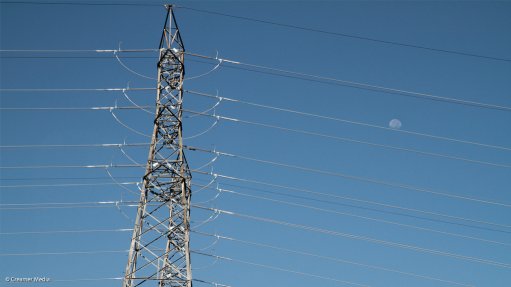Understanding deposit premiums and declarations
This article has been supplied.
By: Kobus van Niekerk
Most short-term insurance policies are annual policies with a predetermined premium, which can be paid monthly. Historically, many Financial Service Providers (FSPs) have issued monthly renewable policies, i.e., month-to-month renewal with a set anniversary date. As a construction and engineering insurance provider, at Consort, we do things differently. We do not issue monthly policies, we issue policies which are paid monthly and have a renewal date. Specific one-off policies are issued with a single premium, which is payable in advance.
Owing to the nature of the business, construction and engineering insurance underwriters also issue policies based on a deposit premium as well as policies with declaration conditions.
Depending on the type of policy, premiums are normally calculated in accordance with the insurable interest, the sums insured, the nature of the risk, and the proposer’s previous claims experience. The underwriter also takes into consideration the proposer’s experience in the class business/risk in hand.
Contract works
All annual Contractors All Risks insurance policies are issued where the premium is normally calculated on the estimated annual contracting turnover (being the aggregation of anticipated contract values) and is regarded as a deposit premium for the ensuing year subject to declaration upon expiry of the policy.
One-off Contractors All Risks insurance policies are based on the estimated contract value, but upon expiry of the policy, a declaration of the actual final contract value, including the free issue material, is required.
At inception, the premium of both wordings is regarded as a minimum and deposit premium. Should the annual turnover (which includes contracts in progress but not completed) exceed the amount estimated at the inception of the period of insurance, the premium is recalculated, and the surplus becomes due to the insurance company. The inception premium is not only the deposit premium but also the minimum premium for the past period of insurance. No refunds will be due in the event of a lesser actual turnover than estimated.
The above also applies to the Public Liability section of the policy.
Plant all risks
Insurers are often requested to insure large volumes of plant and equipment, which produce a substantial overall value at risk.
With the above in mind, clients may qualify for lower premiums for various reasons, one of them being where the account has been running profitably with the incumbent insurer. On the other hand, the many should pay for the losses of the few; therefore, insurers may not reduce premiums to an uneconomical level.
In instances where an account is in a “healthy profitable state”, the Insurer may decide to offer a minimum and deposit premium with a “profit incentive” built in for the insured. The insurer may suggest a minimum and deposit premium with a percentage held in abeyance, subject to an acceptable future claims history. This delay or avoidance of premium is known as a “burner”.
Assuming the Insurer agrees to an 80% annual deposit and minimum premium, the parties will also agree when the balance (sometimes referred to as the residual premium) will become payable.
The percentage is the burner, and for good underwriting practice should never be less than 60% but can vary depending on the underwriter.
Important: The additional premium becomes payable on the date the claims exceed the burner amount. It is wise to retain a burner sum insured to an amount in line with your underwriting breaking point, for instance 60%.
Consort considers each risk in accordance with all underwriting parameters, including the feasibility of a deposit premium.
Consort Technical Underwriting Managers (Pty) Ltd is an Authorised Financial Services Provider (FSP 2273) and underwritten by Lombard Insurance Company Limited (FSP 1596), an insurer licensed to conduct non-life insurance business.
Article Enquiry
Email Article
Save Article
Feedback
To advertise email advertising@creamermedia.co.za or click here
Press Office
Announcements
What's On
Subscribe to improve your user experience...
Option 1 (equivalent of R125 a month):
Receive a weekly copy of Creamer Media's Engineering News & Mining Weekly magazine
(print copy for those in South Africa and e-magazine for those outside of South Africa)
Receive daily email newsletters
Access to full search results
Access archive of magazine back copies
Access to Projects in Progress
Access to ONE Research Report of your choice in PDF format
Option 2 (equivalent of R375 a month):
All benefits from Option 1
PLUS
Access to Creamer Media's Research Channel Africa for ALL Research Reports, in PDF format, on various industrial and mining sectors
including Electricity; Water; Energy Transition; Hydrogen; Roads, Rail and Ports; Coal; Gold; Platinum; Battery Metals; etc.
Already a subscriber?
Forgotten your password?
Receive weekly copy of Creamer Media's Engineering News & Mining Weekly magazine (print copy for those in South Africa and e-magazine for those outside of South Africa)
➕
Recieve daily email newsletters
➕
Access to full search results
➕
Access archive of magazine back copies
➕
Access to Projects in Progress
➕
Access to ONE Research Report of your choice in PDF format
RESEARCH CHANNEL AFRICA
R4500 (equivalent of R375 a month)
SUBSCRIBEAll benefits from Option 1
➕
Access to Creamer Media's Research Channel Africa for ALL Research Reports on various industrial and mining sectors, in PDF format, including on:
Electricity
➕
Water
➕
Energy Transition
➕
Hydrogen
➕
Roads, Rail and Ports
➕
Coal
➕
Gold
➕
Platinum
➕
Battery Metals
➕
etc.
Receive all benefits from Option 1 or Option 2 delivered to numerous people at your company
➕
Multiple User names and Passwords for simultaneous log-ins
➕
Intranet integration access to all in your organisation





















